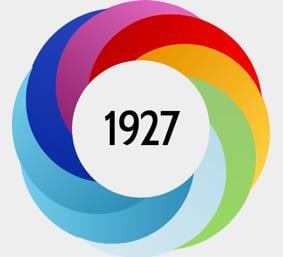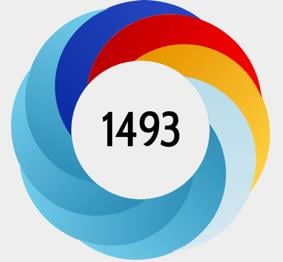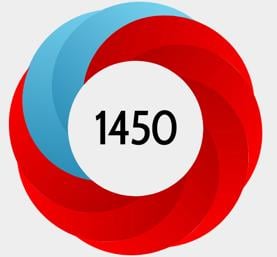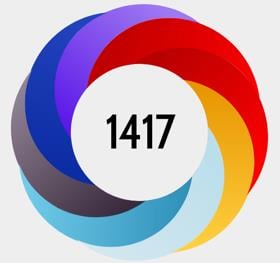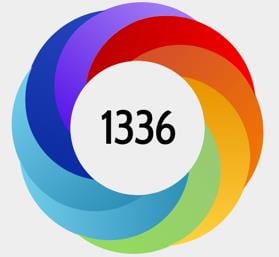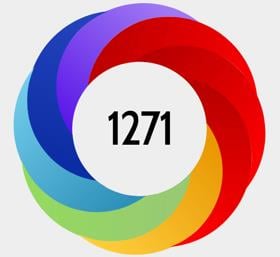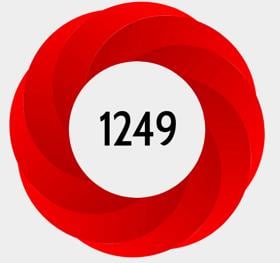
Journal Menu
► ▼ Journal Menu-
- Geosciences Home
- Aims & Scope
- Editorial Board
- Topical Advisory Panel
- Instructions for Authors
- Special Issues
- Topics
- Sections & Collections
- Article Processing Charge
- Indexing & Archiving
- Editor’s Choice Articles
- Most Cited & Viewed
- Journal Statistics
- Journal History
- Journal Awards
- Society Collaborations
- Conferences
- Editorial Office
Journal Browser
► ▼ Journal BrowserNeed Help?
Announcements
26 April 2024
Geosciences | Invitation to Read Editor’s Choice Articles from the First Half of 2023

1. “On the Annual and Semi-Annual Components of Variations in Extent of Arctic and Antarctic Sea-Ice”
by Fernando Lopes, Vincent Courtillot, Dominique Gibert and Jean-Louis Le Mouël
Geosciences 2023, 13(1), 21; https://doi.org/10.3390/geosciences13010021
Available online: https://www.mdpi.com/2076-3263/13/1/21
2. “Berriasian–Valanginian Geochronology and Carbon-Isotope Stratigraphy of the Yellow Cat Member, Cedar Mountain Formation, Eastern Utah, USA”
by Robert M. Joeckel, Celina A. Suarez, Noah M. McLean, Andreas Möller, Gregory A. Ludvigson, Marina B. Suarez, James I. Kirkland, Joseph Andrew, Spencer Kiessling and Garrett A. Hatzell
Geosciences 2023, 13(2), 32; https://doi.org/10.3390/geosciences13020032
Available online: https://www.mdpi.com/2076-3263/13/2/32
3. “Not Every Circle Is a Crater: Kettle Hole Size Distributions and Their Implications in Planetary Surface Age Dating”
by Mackenzie Day, Jordan M. Bretzfelder and Duyen Le
Geosciences 2023, 13(1), 18; https://doi.org/10.3390/geosciences13010018
Available online: https://www.mdpi.com/2076-3263/13/1/18
4. “A Critical Review of Current States of Practice in Direct Shear Testing of Unfilled Rock Fractures Focused on Multi-Stage and Boundary Conditions”
by Nicholas R. MacDonald, Timothy R. M. Packulak and Jennifer J. Day
Geosciences 2023, 13(6), 172; https://doi.org/10.3390/geosciences13060172
Available online: https://www.mdpi.com/2076-3263/13/6/172
5. “Shoreline Change and Coastal Erosion in West Africa: A Systematic Review of Research Progress and Policy Recommendation”
by Johnson Ankrah, Ana Monteiro and Helena Madureira
Geosciences 2023, 13(2), 59; https://doi.org/10.3390/geosciences13020059
Available online: https://www.mdpi.com/2076-3263/13/2/59
6. “Numerical Modeling of an Asteroid Impact on Earth: Matching Field Observations at the Chicxulub Crater Using the Distinct Element Method (DEM)”
by Tam N.-M. Duong, Billy Hernawan, Zenon Medina-Cetina and Jaime Urrutia Fucugauchi
Geosciences 2023, 13(5), 139; https://doi.org/10.3390/geosciences13050139
Available online: https://www.mdpi.com/2076-3263/13/5/139
7. “Factors Contributing to the Long-Term Sea Level Trends in the Iberian Peninsula and the Balearic and Canary Islands”
by Manuel Vargas-Yáñez, Elena Tel, Marta Marcos, Francina Moya, Enrique Ballesteros, Cristina Alonso and M. Carmen García-Martínez
Geosciences 2023, 13(6), 160; https://doi.org/10.3390/geosciences13060160
Available online: https://www.mdpi.com/2076-3263/13/6/160
8. “Geological Uniqueness and Potential Geotouristic Appeal of Murge and Premurge, the First Territory in Puglia (Southern Italy) Aspiring to Become a UNESCO Global Geopark”
by Marcello Tropeano, Massimo A. Caldara, Vincenzo De Santis, Vincenzo Festa, Mario Parise, Luisa Sabato, Luigi Spalluto, Ruggero Francescangeli, Vincenzo Iurilli, Giuseppe A. Mastronuzzi et al.
Geosciences 2023, 13(5), 131; https://doi.org/10.3390/geosciences13050131
Available online: https://www.mdpi.com/2076-3263/13/5/131
9. “Vein Formation and Reopening in a Cooling Yet Intermittently Pressurized Hydrothermal System: The Single-Intrusion Tongchang Porphyry Cu Deposit”
by Xuan Liu, Antonin Richard, Jacques Pironon and Brian G. Rusk
Geosciences 2023, 13(4), 107; https://doi.org/10.3390/geosciences13040107
Available online: https://www.mdpi.com/2076-3263/13/4/107
10. “Assessing 40 Years of Flood Risk Evolution at the Micro-Scale Using an Innovative Modeling Approach: The Effects of Urbanization and Land Planning”
by Tommaso Lazzarin, Andrea Defina and Daniele Pietro Viero
Geosciences 2023, 13(4), 112; https://doi.org/10.3390/geosciences13040112
Available online: https://www.mdpi.com/2076-3263/13/4/112
11. “Subduction and Hydrogen Release: The Case of Bolivian Altiplano”
by Isabelle Moretti, Patrice Baby, Paola Alvarez Zapata and Rosmar Villegas Mendoza
Geosciences 2023, 13(4), 109; https://doi.org/10.3390/geosciences13040109
Available online: https://www.mdpi.com/2076-3263/13/4/109
12. “Big Data, Small Island: Earth Observations for Improving Flood and Landslide Risk Assessment in Jamaica”
by Cheila Avalon-Cullen, Christy Caudill, Nathaniel K. Newlands and Markus Enenkel
Geosciences 2023, 13(3), 64; https://doi.org/10.3390/geosciences13030064
Available online: https://www.mdpi.com/2076-3263/13/3/64
13. “Critical Failure Factors of Flood Early Warning and Response Systems (FEWRS): A Structured Literature Review and Interpretive Structural Modelling (ISM) Analysis”
by Srimal Samansiri, Terrence Fernando and Bingunath Ingirige
Geosciences 2023, 13(5), 137; https://doi.org/10.3390/geosciences13050137
Available online: https://www.mdpi.com/2076-3263/13/5/137
14. “Earthquake, Fire, and Water: Destruction Sequence Identified in an 8th Century Early Islamic Harbor Warehouse in Caesarea, Israel”
by Charles J. Everhardt IV, Hendrik W. Dey, Uzi ‘Ad, Jacob Sharvit, Peter Gendelman, Joel Roskin, Lotem Robins, Roy Jaijel, Ofra Barkai and Beverly N. Goodman-Tchernov
Geosciences 2023, 13(4), 108; https://doi.org/10.3390/geosciences13040108
Available online: https://www.mdpi.com/2076-3263/13/4/108
15. “Shallow Geothermal Potential of the Sant’Eufemia Plain (South Italy) for Heating and Cooling Systems: An Effective Renewable Solution in a Climate-Changing Society”
by Giovanni Vespasiano, Giuseppe Cianflone, Marco Taussi, Rosanna De Rosa, Rocco Dominici and Carmine Apollaro
Geosciences 2023, 13(4), 110; https://doi.org/10.3390/geosciences13040110
Available online: https://www.mdpi.com/2076-3263/13/4/110
16. “The First Rock Glacier Inventory for the Greater Caucasus”
by Levan G. Tielidze, Alessandro Cicoira, Gennady A. Nosenko and Shaun R. Eaves
Geosciences 2023, 13(4), 117; https://doi.org/10.3390/geosciences13040117
Available online: https://www.mdpi.com/2076-3263/13/4/117
17. “The Importance of Rock Mass Damage in the Kinematics of Landslides”
by Davide Donati, Doug Stead and Lisa Borgatti
Geosciences 2023, 13(2), 52; https://doi.org/10.3390/geosciences13020052
Available online: https://www.mdpi.com/2076-3263/13/2/52
18. “Geologically-Driven Migration of Landmines and Explosive Remnants of War—A Feature Focusing on the Western Balkans”
by Ivo Baselt, Adis Skejic, Budo Zindovic and Jens Bender
Geosciences 2023, 13(6), 178; https://doi.org/10.3390/geosciences13060178
Available online: https://www.mdpi.com/2076-3263/13/6/178
19. “The Contributions of Marine Sediment Cores to Volcanic Hazard Assessments: Present Examples and Future Perspectives”
by Chris Satow, Sebastian Watt, Mike Cassidy, David Pyle and Yuqiao Natalie Deng
Geosciences 2023, 13(4), 124; https://doi.org/10.3390/geosciences13040124
Available online: https://www.mdpi.com/2076-3263/13/4/124
20. “Teaching Geology in Higher Education Institutions under COVID-19 Conditions”
by Georgios Giotopoulos, Dimitrios Papoulis, Ioannis Koukouvelas, Irini Skopeliti, Polychronis Economou and Eleni Gianni
Geosciences 2023, 13(4), 96; https://doi.org/10.3390/geosciences13040096
Available online: https://www.mdpi.com/2076-3263/13/4/96
21. “High-Resolution Lidar-Derived DEM for Landslide Susceptibility Assessment Using AHP and Fuzzy Logic in Serdang, Malaysia”
by Jude Okoli, Haslinda Nahazanan, Faten Nahas, Bahareh Kalantar, Helmi Zulhaidi Mohd Shafri and Zailani Khuzaimah
Geosciences 2023, 13(2), 34; https://doi.org/10.3390/geosciences13020034
Available online: https://www.mdpi.com/2076-3263/13/2/34
22. “Reinforcement Learning for the Face Support Pressure of Tunnel Boring Machines”
by Enrico Soranzo, Carlotta Guardiani and Wei Wu
Geosciences 2023, 13(3), 82; https://doi.org/10.3390/geosciences13030082
Available online: https://www.mdpi.com/2076-3263/13/3/82
23. “‘Geo-Archaeo-Routes’ on the Island of Lemnos: The “Nalture” Experience as a Holistic Geotouristic Approach within the Geoethical Perspective”
by Maria V. Triantaphyllou, Nikolaos Firkasis, Theodora Tsourou, Emmanuel Vassilakis, Evangelos Spyrou, Olga Koukousioura, Argyro Oikonomou and Athanasios Skentos
Geosciences 2023, 13(5), 143; https://doi.org/10.3390/geosciences13050143
Available online: https://www.mdpi.com/2076-3263/13/5/143
24. “Nisyros Aspiring UNESCO Global Geopark: Crucial Steps for Promoting the Volcanic Landscape’s Unique Geodiversity”
by Paraskevi Nomikou, Dimitrios Panousis, Elisavet Nikoli, Varvara Antoniou, Dimitrios Emmanouloudis, Georgios Pehlivanides, Marios Agiomavritis, Panagiotis Nastos, Emma Cieslak-Jones and Aris Batis
Geosciences 2023, 13(3), 70; https://doi.org/10.3390/geosciences13030070
Available online: https://www.mdpi.com/2076-3263/13/3/70
25. “Sea Caves and Other Landforms of the Coastal Scenery on Gozo Island (Malta): Inventory and New Data on Their Formation”
by Stefano Furlani, Fabrizio Antonioli, Emanuele Colica, Sebastiano D’Amico, Stefano Devoto, Pietro Grego and Timmy Gambin
Geosciences 2023, 13(6), 164; https://doi.org/10.3390/geosciences13060164
Available online: https://www.mdpi.com/2076-3263/13/6/164
26. “Assessment of the Record-Breaking 2020 Rainfall in Guinea-Bissau and Impacts of Associated Floods”
by Orlando Mendes and Marcelo Fragoso
Geosciences 2023, 13(2), 25; https://doi.org/10.3390/geosciences13020025
Available online: https://www.mdpi.com/2076-3263/13/2/25
by Firas Daghistani, Abolfazl Baghbani, Hossam Abuel Naga and Roohollah Shirani Faradonbeh
Geosciences 2023, 13(7), 197; https://doi.org/10.3390/geosciences13070197
Available online: https://www.mdpi.com/2076-3263/13/7/197
8 April 2024
Meet Us at the 9th Youth Geoscience Forum, 17–20 May 2024, Xiamen, China

MDPI will be attending the 9th Youth Geoscience Forum, which will be held from 17 to 20 May 2024 in Xiamen, China.
The Young Geoscience Forum is a free, equal and controversial communication platform initiated by young geoscientists in China, with distinguished scientists as advisors and young scholars and postgraduate students as the main participants. Since its inception in 2014, the Forum has been successfully held in Lanzhou (2014), Urumqi (2015), Xi'an (2016), Chengdu (2017), Nanjing (2018), Xining (2019), Guiyang (2021) and Wuhan (2023). Over time, it has gradually developed into a platform for academic exchanges and collision of ideas among young geoscientists in China. The conference has been successfully held eight times.
The Forum will feature 20 themes, with multiple different topics within each, and is expected to comprise about 270 topics. There will be invited presentations, special presentations and exhibition panels.
The following MDPI journals will be represented:
- Atmosphere;
- Earth;
- GeoHazards;
- Geoscience;
- Geotechnics;
- Hydrology;
- Land;
- Minerals;
- Nitrogen;
- Remote Sensing;
- Soil Systems;
- Sustainability;
- Water.
If you plan to attend this conference, please stop by booth #29 and start a conversation with us. Our delegates look forward to meeting you in person and answering any questions you may have. For more information about the conference, please visit the following website: http://www.qndxlt.com/index.html.
2 April 2024
Meet Us at the EGU General Assembly 2024, 14–19 April 2024, Vienna, Austria

MDPI will be attending the EGU General Assembly 2024 in Vienna, Austria, which will take place from 14 to 19 April 2024 at booth #57. The EGU General Assembly 2024 is organized by the European Geosciences Union, and this is the 22nd conference. It brings together geoscientists from all over the world to one meeting covering all disciplines of the Earth, planetary, and space sciences. The EGU 2024 aims to provide a forum where scientists, especially early-career researchers, can present their work and discuss their ideas with experts in all fields of geoscience.
The following MDPI journals will be represented:
- Remote Sensing;
- Water;
- Hydrology;
- Meteorology;
- Sustainability;
- Atmosphere;
- Climate;
- Earth;
- Land;
- Minerals;
- Geographies;
- IJGI;
- Resources;
- Gases;
- Forests;
- Oceans;
- Quaternary;
- Geotechnics;
- Mining;
- Geomatics;
- Drones;
- Geosciences;
- Nitrogen;
- Soil Systems.
If you are attending the conference, please visit our booth. Our delegates look forward to meeting you in person and answering any questions that you may have. For more information about the conference, please visit the following website: https://www.aag.org/events/aag2024/.
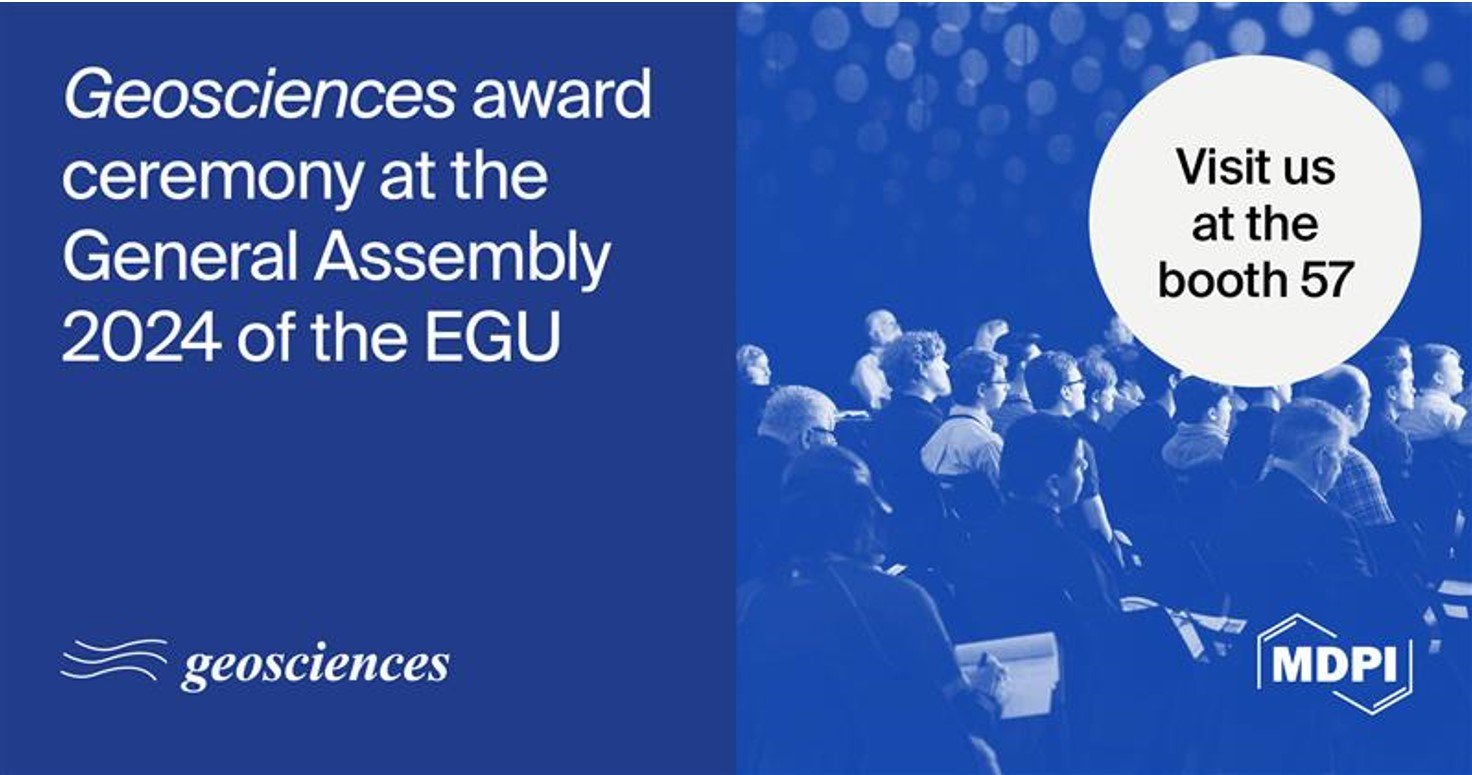
We would also like to congratulate the winners of the Geosciences 2024 Travel Award and the 2023 Outstanding Reviewer Award. Professor Olivier Lacombe, Section Editor-in-Chief of Geosciences, will present prizes on-site to Dr. Andrea Maffeis from Università di Torino, Dr. Simone Bello from University G. d’Annunzio, and Dr. Yuchen Wang from Japan Agency for Marine-Earth Science and Technology.
Join us on 16 April 2024 (17:30–17:45 CET) for the award ceremony at booth #57. If you are interested in travel support or learning about other MDPI awards, please visit our booth during the conference where our conference representatives will be available to assist you.
2 April 2024
MDPI Insights: The CEO's Letter #10 - South Korea, IWD, U2A, Japan

Welcome to the MDPI Insights: The CEO's Letter.
In these monthly letters, I will showcase two key aspects of our work at MDPI: our commitment to empowering researchers and our determination to facilitating open scientific exchange.
Opening Thoughts

Left to right: Dr. Jisuk Kang (Scientific Officer, MDPI), Stefan Tochev (CEO, MDPI), and Dr. Giulia Stefenelli (Chair of Scientific Office Board, MDPI), during media meetings at Prain Agency office in Seoul, South Korea.
Visit to Seoul, South Korea
During my recent visit to South Korea, I had the privilege of meeting various stakeholders, including representatives of government, research institutions, and academia, to understand their needs and communicate MDPI’s commitment to accessible science. Accompanied by my colleagues Dr. Giulia Stefenelli and Dr. Jisuk Kang, I engaged with the Korean scientific community, which is increasingly embracing open access (OA).
As the leading OA publisher in South Korea, MDPI is trusted by local authors and in 2023 enjoyed an approximately 30% share of the OA market. South Korea ranks sixth globally for MDPI in terms of research papers submitted and published.
MDPI and South Korea by Numbers
As at 30 March, over 76,000 MDPI articles have been authored by individuals affiliated with Korean institutions. We have over 1,800 active editorial board members (EBMs) from South Korea, with more than 880 EBMs having an H-index between 26 and 50, including 10 serving as Chief Editors.
“South Korea is the sixth-largest contributor to our total publications”
Over the past five years (2019–2023), nearly 120,000 authors affiliated with South Korean institutes have published with MDPI. Specifically in 2023, we received approximately 25,000 submissions from South Korean authors, publishing close to 13,000 articles, resulting in a rejection rate of 47.4%, which is not far below MDPI’s overall rejection rate of 56.4% in 2023.
Institutional Partnerships with South Korea
I am pleased to share that MDPI has more than 825 institutional partnerships worldwide, with 12 in South Korea, including Kyunghee University, Chung-Ang University, and Inha University, among others.

Left to right: Dr. Jisuk Kang (Scientific Officer, MDPI), Dr. Giulia Stefenelli (Chair of Scientific Office Board, MDPI), and Stefan Tochev (CEO, MDPI) fielding media questions at Prain PR Agency office in Seoul, South Korea.
Over the past three years (2021–2023), we have had some of the most prestigious academic universities ranked among the top 10 Korean institutions publishing with MDPI. Seoul National University had the highest number of publications with MDPI during those three years, publishing nearly 6,000 papers. Universities such as Korea University and Yonsei University also rank among the top 10 Korean institutions publishing with MDPI.
MDPI Hosts Seminar for Academia and Media
As the world’s leading OA publisher, MDPI is actively democratizing science. This is reflected in the seminars we hosted on 21 March to address questions about our editorial processes and ethical standards. The visit garnered media coverage, reflecting our mission to providing high-quality services and fostering open dialogue in the community.
“MDPI is actively democratizing science”
MDPI in the News

Stefan Tochev (CEO, MDPI) leading a seminar on OA and MDPI at Prain PR Agency office in Seoul, South Korea.
Media coverage generated by our visit to Seoul included the following stories:
“Open access is an unstoppable trend…it will lead the development of the knowledge ecosystem.”
I greatly appreciate the contributions of everyone who took the time to meet with us, share their stories, and hold us accountable for continuing to provide high-quality publishing services while identifying areas for improvement. I am also excited to announce that we have opened an MDPI office in Seoul and will release a press release on MDPI.com, with details, by the end April 2024. The purpose of the office is to establish a local presence to connect with and support the South Korean academic community through institutional partnerships, conferences, author workshops, stakeholder communications, and more.
Impactful Research

Featured Articles on Women’s Leadership and Healthcare
In celebration of International Women’s Day (8 March 2024), MDPI curated a collection of research articles on various topics, including women’s leadership, reproductive health, preventive healthcare, and a selection of articles from our journal Women.
Women’s Leadership
- Women Entrepreneurship and Sustainable Development: Bibliometric Analysis and Emerging Research Trends
Sustainability 2022, 14, 9160. https://doi.org/10.3390/su14159160 - Refugee Women Business Mentors: New Evidence for Women’s Empowerment
Sustainability 2022, 14, 9154. https://doi.org/10.3390/su14159154 - Women and Leadership in Higher Education: A Systematic Review
Soc. Sci. 2023, 12, 555. https://doi.org/10.3390/socsci12100555 - Understanding Needs and Potentials for Gender-Balanced Empowerment and Leadership in Climate Change Adaptation and Mitigation in Africa
Sustainability 2022, 14, 9410. https://doi.org/10.3390/su14159410 - Challenges Women Experience in Leadership Careers: An Integrative Review
Merits 2023, 3, 366-389. https://doi.org/10.3390/merits3020021
Women’s Reproductive Health
- Recreational Female Athletes’ Understanding of and Perceived Impact of the Menstrual Cycle on Physical Performance, Mood, and Sleeping Behaviour
Women 2023, 3, 445-456. https://doi.org/10.3390/women3030034 - Difficulties in Adaptation of the Mother and Newborn via Cesarean Section versus Natural Birth—A Narrative Review
Life 2023, 13, 300. https://doi.org/10.3390/life13020300 - The Main Theories on the Pathogenesis of Endometriosis
Int. J. Mol. Sci. 2023, 24, 4254. https://doi.org/10.3390/ijms24054254
Women’s Preventive Healthcare
- Insulin Metabolism in Polycystic Ovary Syndrome: Secretion, Signaling, and Clearance
Int. J. Mol. Sci. 2023, 24, 3140. https://doi.org/10.3390/ijms24043140 - Assessing Barriers Encountered by Women in Cervical Cancer Screening and Follow-Up Care in Urban Bolivia, Cochabamba
Healthcare 2022, 10, 1604. https://doi.org/10.3390/healthcare10091604 - Updates on HPV Vaccination
Diagnostics 2023, 13, 243. https://doi.org/10.3390/diagnostics13020243
Featured Articles in MDPI Journal Women
Below are a few articles from Women, our journal focused on women’s health, the social determinants of health, and the healthcare system that serves women. The aim of Women is to encourage academics to publish their experimental and theoretical results in detail, to aid reproducibility, and in an engaging style, to aid comprehensibility.
- Premenstrual Syndrome and Exercise: A Narrative Review
Women 2023, 3, 348-364. https://doi.org/10.3390/women3020026 - Increasing Awareness of the Human Papillomavirus (HPV) Vaccine for Women 18–45 Years of Age
Women 2023, 3, 365-373. https://doi.org/10.3390/women3030027 - Addressing Women’s Needs with Human Immunodeficiency Virus (HIV) and Enhancing the Visibility of Pharmacists in the Public Health Arena
Women 2022, 2, 346-352. https://doi.org/10.3390/women2040032
Inside MDPI

Championing Women’s Healthcare and Access to Healthcare Information
MDPI colleagues from our offices joined in celebrating #IWD2024. In doing so, we emphasized key missions that encompass:
- Empowering women to assume leadership and decision-making roles in both business and science.
- Helping women and girls make informed decisions about their health.
- Recruiting and developing female talent and fostering inclusive workplace environments.
“We are thrilled to recognize the accomplishments of women scientists”
I am proud to see our colleagues enthusiastically supporting the International Women’s Day call to ‘Inspire Inclusion!’ The heart-hands in the collage below symbolize our appreciation of the achievements of women researchers and the recognition of the trailblazers who have courageously made a mark on societies past and present.

We are thrilled to recognize the accomplishments of women scientists through our many MDPI awards and by highlighting success stories. As inspirational figures, female scientists are paving the way for the next generation of women aspiring to pursue careers in engineering, life sciences, computing, and various other STEM fields.
“I consider myself lucky because I work with incredibly talented women who inspire me every day.”
– Dr. Alessandra Pasut, Winner of MDPI's ‘Biology 2023 Young Investigator Award’
“It’s really important to find a supportive and enabling environment in which to do your science; it would have a big impact on you as a person and on your scientific outputs.”
– Dr. Rhea Longley, Winner of the ‘Pathogens 2023 Young Investigator Award’
Open-access publishing, in particular, allows early-career women researchers to share their work more widely, potentially attracting mentorship opportunities and collaborations. This support is crucial for career development and advancement.
Coming Together for Science

MDPI Joins United2Act in Collective Fight to Stop Paper Mills
In my February 2024 CEO Letter, I highlighted some of our recent initiatives aimed at bolstering our commitment to research integrity, including joining the STM Integrity Hub and expanding our Research Integrity and Publication Ethics team (RIPE). Continuing our efforts in coming together for science, I am pleased to share our participation in the United2Act initiative.
The text below is taken from our official announcement:
United2Act represents an international group of stakeholders in the publishing industry committed to addressing the collective challenge posed to research integrity by paper mills.
Scientists and academic publishers have increasingly noted the alarming proliferation of paper mills, recognized as fraudulent entities seeking to manipulate the publication process for financial profit. These entities engage in fraudulent practices such as falsifying or fabricating data, selling co-authorship of fake papers, manipulating peer review, and including inappropriate citations. These actions pose a significant threat to the integrity of the scholarly record, prompting widespread concern among those involved in the academic community.
MDPI has been actively contributing to combat the undermining of the scientific record. Our editors employ a set of tools to detect potential ethical breaches within a manuscript and to tackle the issue of fake papers.
United2Act’s consensus statement is the outcome of a virtual summit held in May 2023. It involved the participation of research bodies, publishers, researchers/sleuths, universities, and publishing infrastructure from 15 countries and resulted in a Consensus Statement outlining five key areas of action for all stakeholders:
- Education and awareness
- Improve post-publication corrections
- Facilitate and organise research on paper mills
- Enable the development of trust markers
- Facilitate dialogue between stakeholders
MDPI is committed to promoting transparency and integrity in scholarly publishing and is continuing to work closely with the scientific community toward this goal.
Closing Thoughts

Left to right: Ryo Hirayama (Marketing Specialist, MDPI), Takashi Sasabe (Marketing Specialist, MDPI), Dr. Giulia Stefenelli (Chair of Scientific Office Board, MDPI), Dr. Izumi Yamamoto (Marketing Manager, MDPI), and Stefan Tochev (CEO, MDPI), at MDPI’s office in Tokyo, Japan.
Visit to Tokyo and Kyoto, Japan
In March, I had the opportunity to visit our Tokyo office and engage with stakeholders in Tokyo and Kyoto. During the visit, I also recorded a video message to welcome Japanese scholars working with MDPI and to highlight our operations in Japan.
We held meetings with Editors-in-Chief, librarians, scholars, and external consultants to gather feedback on our efforts to enhance our reputation and explore additional steps we can take in that direction. Japan's rich cultural heritage, characterized by tradition, respect, and formality, provided valuable insights into meeting the publishing needs specific to Japan.
Japan’s Open Access statistics
Over the years, we have seen a shift from subscription-only to gold OA publishing in Japan, despite the lack of an official mandate. Here are some statistics:
- 2012: 68% of articles were subscription-only, 6% were green Open Access, and 8% were gold Open Access.
- 2016: 55% of articles were subscription-only, 6% were green Open Access, and 20% were gold Open Access.
- 2022: 43% of articles were subscription-only, 7% were green Open Access, and 39% were gold Open Access.
To learn more about the history of OA in Japan as well as about future trends, please read this blog post.
“Japan is the ninth-largest contributor to our total publications”

Left to right: Stefan Tochev (CEO, MDPI), Dr. Izumi Yamamoto (Marketing Manager, MDPI), and Dr. Giulia Stefenelli (Chair of Scientific Office Board, MDPI) visiting Kyoto University in Kyoto, Japan.
MDPI and Japan by Numbers
As at 1 April, over 50,000 MDPI articles have been authored by scholars affiliated with Japanese institutions, making the country the ninth-largest contributor to our total publications. Over the past three years (2020–2023), nearly 90,000 authors affiliated with Japanese institutes have published with MDPI, and we have collaborated with over 4,600 Guest Editors from Japan.
In 2023, we published over 8,200 papers from authors associated with Japanese institutions. MDPI collaborates with 41 institutional partnerships in Japan, including the University of Tokyo, Hokkaido University, and Nagoya University. We have over 2,100 active EBMs from Japan, more than 1,050 EBMs having an H-index between 26 and 50, including 13 serving as Editors-in-Chief.
General Feedback – a side note
A general takeaway from our discussions with stakeholders from around the world is that negative perceptions of MDPI often stem from misinformation, misconceptions, or misunderstandings about MDPI and our practices. While we acknowledge our mistakes and work diligently to address them, maintaining a strong editorial procedure and robust peer-review process, I find that educating stakeholders about our how we do what we do and our ongoing improvements tends to help shift opinions.
That said, we recognize the importance of addressing individual concerns. We take feedback seriously and are continuously working to get better while not compromising the core principles that millions of authors appreciate about MDPI.
Chief Executive Officer
MDPI AG
21 March 2024
Meet Us at the 2024 Ocean Decade Conference, 10–12 April 2024, Barcelona, Spain

MDPI will be attending the 2024 Ocean Decade Conference, which will be held from 10 to 12 April 2024 in Barcelona, Spain.
Three years after the start of the UN Decade of Ocean Science for Sustainable Development (2021–2030), the 2024 Ocean Decade Conference will bring together the Ocean Decade community and partners to celebrate achievements and set joint priorities for the future of the decade.
With the subtitle of “Delivering the Science We Need for the Ocean We Want”, the conference will be firmly anchored in the precepts of the ocean decade related to solution-oriented, transformative ocean science, and highlight the role of the decade as a framework to galvanize diverse groups in inclusive and equitable co-design and co-delivery processes.
The following MDPI journals will be represented:
- Atmosphere;
- Climate;
- Environments;
- Forecasting;
- Geosciences;
- JMSE;
- Marine Drugs;
- Oceans;
- Remote Sensing.
If you are planning to attend this conference, please feel free to stop by booth #33 and start a conversation with us. Our delegates look forward to meeting you in person and answering any questions that you may have. For more information about the conference, please visit the following website: https://oceandecade-conference.com/about.php.
4 March 2024
MDPI Insights: The CEO's Letter #9 - Romania, Research Integrity, Viruses

Welcome to the MDPI Insights: The CEO's Letter.
In these monthly letters, I will showcase two key aspects of our work at MDPI: our commitment to empowering researchers and our determination to facilitating open scientific exchange.
Opening Thoughts

Reka Kovacs (Deputy Office Manager, MDPI), Stefan Tochev (CEO, MDPI), and Sandra Ana Spatariu (Office Manager, MDPI) at the MDPI office in Cluj, Romania.
MDPI’s Impact on Romania
In February, I visited our office in Cluj, Romania. I worked closely with our senior office managers and various teams, including the departments of training, marketing and conferences, as well as our journal relationship specialists, reviewing our service to the local scholarly community. During the visit, I also met with representatives from Babes-Bolyai University and the Technical University of Cluj-Napoca. Our multifunctional Romanian office plays an important role in supporting our collaborations with the local market as well as helping to meet MDPI’s overall business needs.

Feedback and strategy meeting with a group of MDPI’s Journal Relationship Specialists at the MDPI office in Cluj, Romania.
With 22,436 articles, Romania ranks as a top 20 contributing country to MDPI’s total number of papers published as at 28 February 2024. This highlights the importance of our collaboration with Romanian-affiliated authors and the growing opportunity to support their publishing needs. MDPI is one of the few academic publishers with a significant presence in Romania, boasting over 360 colleagues across our offices in Bucharest and Cluj. We are also proud to hire colleagues from local institutions to launch their careers within publishing.
Romania ranks as a top 20 contributing country.
The Numbers: 2019–2023
MDPI has seen a healthy increase in submissions from Romanian authors over the past three years, from 8,439 in 2021 to 11,866 by end of 2023, with most submissions going to journals such as Sustainability, Medicina, Diagnostics, IJMS, Applied Sciences, and JCM. From 2019 to 2023, MDPI published articles from 32,145 authors affiliated with Romanian institutions. Over those years, we have worked with Romanian Guest Editors on nearly 3,000 occasions to support their Special Issue and Topical collections.
With more than 300 Editorial Board Members from Romania, 34 appear on the board of Mathematics, 27 on Materials, 19 on Polymers, 18 on Coatings, and 16 on Molecules, while three serve as Section Editors-in-Chief (SEiC) on our journals Coatings (3.4 IF, 4.6 Citescore), Magnetochemistry (2.7 IF, 3.5 Citescore), and Chemosensors (4.2 IF, 3.9 Citescore).
Institutional Open Access Programs
Our commitment to working with institutions is evident in Romania, where we have established eight Institutional Open Access Programs (IOAP) with esteemed institutions such as the University of Bucharest, the University of Medicine and Pharmacy Cluj-Napoca, and most recently the National Institute for Laser, Plasma and Radiation Physics.
Our growth and presence in Romania are a true testament.
We also have IOAP agreements with Babes-Bolyai University and the Technical University of Cluj-Napoca, where I had the opportunity to meet senior stakeholders during my visit. Below are a few photos capturing our meeting with Prof. Radu Silaghi-Dumitrescu (Head of Faculty of Chemistry, Babes-Bolyai University) at the MDPI office in Cluj, Romania, along with a photo from our meeting with Vice Deans Nicoleta Cobarzan, Nicoleta Ilies, and Hoda Gavril, from the faculty of Civil Engineering at the Technical University of Cluj, Romania.


Our growth and presence in Romania are a true testament to the service we provide to the scholarly community and the relationships we foster in that region. We look forward to continuing to support Romanian scholars and institutions by providing a valuable and trusted experience with MDPI, the leader in open access publishing.
Impactful Research

MDPI Joins the STM Integrity Hub
MDPI has long been a supporter and partner of STM, with our involvement ranging from sponsoring and attending events to helping organize event programs. By joining the STM Integrity Hub, we aim to further our commitment to STM initiatives aimed at safeguarding the integrity of science.
“We are pleased to welcome MDPI as the 35th organisation participating in the Hub. This expansion is critical, as every new member enhances our capacity to prevent fraudulent submissions from entering the academic record.”
Joris van Rossum, Director of Research Integrity, STM
MDPI operates in full alignment with STM Integrity Hub's values of shared data and experiences. We strongly believe in collaboration and open exchange for the purposes of creating a holistic approach to support research integrity at MDPI itself and across the entire academic publishing industry. The Integrity Hub is an excellent example of how publishers can come together to jointly address industry-wide challenges related to research integrity, such as manuscripts that breach research integrity standards and paper-mills.
I look forward to our Research Integrity and Publication Ethics Team (RIPE) team immersing themselves in this initiative, exchanging information, best practices, and tools for the benefit of the entire scholarly ecosystem. We believe that ethical publishing standards should be implemented across the board, and we aim to be rigorous in our approach, addressing research integrity issues and improving the impact of published research.
Inside MDPI

MDPI Expands Research Integrity and Publication Ethics Team (RIPE)
In addition to external collaborations and joint initiatives aimed at further strengthening our commitment to research integrity, we are also enhancing our internal efforts. This includes improving our processes and guidelines and expanding our teams and departments to ensure quality assurance throughout our publishing process.
We are pleased to announce the expansion of our Research Integrity and Publication Ethics Team (RIPE) at MDPI. The RIPE team has recently welcomed new colleagues, each bringing unique skills and a personal commitment to prioritize ethical considerations in all our work.
The demand for research integrity and high ethical standards in academic publishing is steadily rising across our industry. Our expanded RIPE team will work to enhance and align our practices with industry best practices, ensuring excellence in research integrity and publication ethics.

Stefan Tochev (CEO, MDPI) introduces Dr. Tim Tait-Jamieson (Research Integrity Lead, MDPI) for his presentation on MDPI’s Retraction and Approval Process to a group of Journal Relationship Specialists at the MDPI office in Cluj, Romania: “The demand for research integrity and publication ethics is steadily rising across our industry.”
Introducing our Research Integrity and Publication Ethics Team
Led by Dr. Tim Tait-Jamieson (Research Integrity Lead), the RIPE team comprises Dr. Ivana Resanovic (Research Integrity Manager), Dr. Lavinia Rogojina (Research Integrity Manager), Ms. Diana Apodaritei (Research Integrity Specialist), Dr. Zoltan Mihaly (Research Integrity Specialist), Mr. Aleksandar Đukić (Research Integrity Specialist), Ms. Ana Stankovic (Research Integrity Specialist), and Ms. Anna Pena (Publication Ethics Assistant).
Please click here to access everything that you need to know about MDPI’s Research and Publication Ethics.
With this span of complementary roles, the RIPE team collaborates directly with journal editorial teams and works closely with various departments, including our Scientific Office Board and our Journal Relationship Specialists. The team’s primary objectives are to help prevent issues regarding research integrity and publication ethics during peer review, uphold MDPI’s ethics policies, adhere to industry standards, and resolve publication ethics and research integrity issues and complaints.
Quality Updates to Special Issues Oversight
At MDPI, we are committed to reviewing policies pertaining to the quality of research. In this blog post, Shaheena Patel (Communications Associate, MDPI), outlines two recent updates to MDPI journal processes. These updates pertain to Special Issue (SI) quality guidelines, in line with criteria provided by COPE and DOAJ. Alongside the SI updates, details regarding the new minor corrections policy introduced in 2024 are provided in the blog.
The two updates we implemented include greater oversight and the verification of Guest Editor credentials. These guidelines require that Editors-in-Chief (EiCs) and Editorial Board Members (EBMs) take responsibility for overseeing SIs.
PS. Thank you, James Butcher, for featuring this up in your 67th issue of the Journalogy newsletter.
Read more:
Coming Together for Science

Viruses 2024 – A World of Viruses
I am pleased to share the success of our MDPI conference Viruses 2024 – A World of Viruses, held 14-16 February, in Barcelona. With 240 registrations, this event brought together top scientists, researchers, and industry experts from 40 countries to share their findings on the latest developments in viral pathogenesis and immune responses.
Attendees gathered for the 5th edition of the Viruses’ conference, where we hosted influential keynote speeches from Nobel Prize laureate Dr. Charles M. Rice and ‘Distinguished Senior Virologist’ Prof. Luis Enjuanes, along with 14 invited speakers, 47 selected speakers, and nine flash poster presenters, to discuss the most significant issues in virology today.
Recap on the #Viruses2024 Conference
Take a look at the key moments from MDPI’s Viruses event and please join us in commemorating a gathering for global knowledge and cooperation. A heartfelt thank-you to all attendees; their passion and engagement played a crucial role in making this event an engaging success!
Below are calls to action from the keynote speakers encouraging collaboration and communication:
“There’s never been a better time than now to really take the power that we have both in terms of basic research and also in biotech and pharma to develop antiviral agents.” - Dr. Charles M. Rice, The Rockefeller University, New York, USA
“The collaboration between labs is absolutely essential. Improving initial detection and improving communication is a must for all of us working in science.” - Prof. Dr. Luis Enjuanes, National Center of Biotechnology (CNB-CSIC), Madrid, Spain

Our thanks go to our sponsors and partnering societies, our Viruses journal and editorial team, our Barcelona colleagues, and the social media, conference and other MDPI teams for making this event a memorable occasion. View the event gallery here.
Upcoming In-Person Event

24–26 April, 2024
4th MMCS – Harnessing the Power of New Drug Modalities
Location: Barcelona, Spain
Esteemed speakers at MMCS 2024 include Prof. Arun K. Ghosh, the mind behind the Darunavir molecule, and Prof. Paul Brennan, CSO of Alzheimer's Research UK Oxford Drug Discovery Institute.
Find more upcoming MDPI events here.
Organize Your Event with MDPI’s Sciforum
Sciforum is MDPI’s platform dedicated to the organization of scientific events. In line with our mission to promote science, Sciforum supports scholars, societies, research networks, and universities at all stages of organizing in-person events, virtual events and webinars. Our platforms are efficient, user-friendly, and cost-effective. We handle all steps related to event management. Contact us for details.
Closing Thoughts

Researcher to Reader (R2R) Conference
From 20–21 February 2024, I had the pleasure of attending the Researcher to Reader (R2R) conference in London, which MDPI has proudly sponsored over the years. The conference programme offered a variety of session formats, including workshops, panel discussions, debates, interviews, presentations, and lightning talks, with opportunities to discuss relevant topics.
We take pride in supporting the scientific community, bringing researchers across the world together to network, exchange ideas and share the latest in science and publishing. In 2023, MDPI invested close to 2 million CHF in sponsoring over 2,000 scientific and publishing-related conferences worldwide.
R2R Peer Review Innovations Workshop
I found the R2R conference to be engaging, with the workshops being particularly enjoyable. My colleague Giulia Stefenelli (Chair of Scientific Office Board) and I participated in the “Peer Review Innovations” workshop, which spanned four sessions over the two days. These sessions explored the future of peer review and how we can improve the peer review process for everyone involved. Notably, the large majority of attendees expressed their opinion that peer review, as currently practiced, requires significant improvement. Together, we collaborated on potential immediate and long-term improvements and innovative processes, aiming to create an ecosystem beneficial to all stakeholders by strengthening submission systems with the aim of reducing threats and making authors more responsible for their work. We also discussed the opportunity for academic institutions to better scrutinize the quality of the work produced and submitted to journals.
Our group comprised publishers, software providers, librarians, and more, bringing diverse perspectives to the discussions. These interactions were relevant to MDPI’s ongoing conversations, providing insights to our efforts. The session also made me appreciate that MDPI is doing well, as the group discussions included the subject of various quality checks that we have already embedded in our processes, ensuring that we keep abreast of industry standards.
The need for an optimized system to incentivize the activities of editors and reviewers was also a focus of discussion, as well as the support that reviewers need from publishers via the provision of strong reports through fixed forms, questionnaires and training.
At MDPI, we are currently auditing our reviewer program to improve reviewer recognition, guidelines, and methods for identifying suitable reviewers, while maintaining our commitment to quality and timeliness.
Congratulations to Mark Carden, Conference Director, and the R2R team for organizing a productive and successful event. PS: The break times were greatly appreciated as well!
Chief Executive Officer
MDPI AG
26 February 2024
Interview with Prof. Dr. Michel Faure—Winner of the Geosciences 2023 Best Paper Award
All papers published in 2022 in Geosciences (ISSN: 2076-3263) were considered for the award. After a thorough evaluation of the originality and significance of the papers, citations, and downloads, the winner was selected.
“Reconstructing the Variscan Terranes in the Alpine Basement: Facts and Arguments for an Alpidic Orocline”
by Michel Faure and Jacky Ferrière
Geosciences 2022, 12(2), 65; https://doi.org/10.3390/geosciences12020065
The winners will receive CHF 500 and a chance to publish a paper free of charge after peer review in Geosciences in 2024.
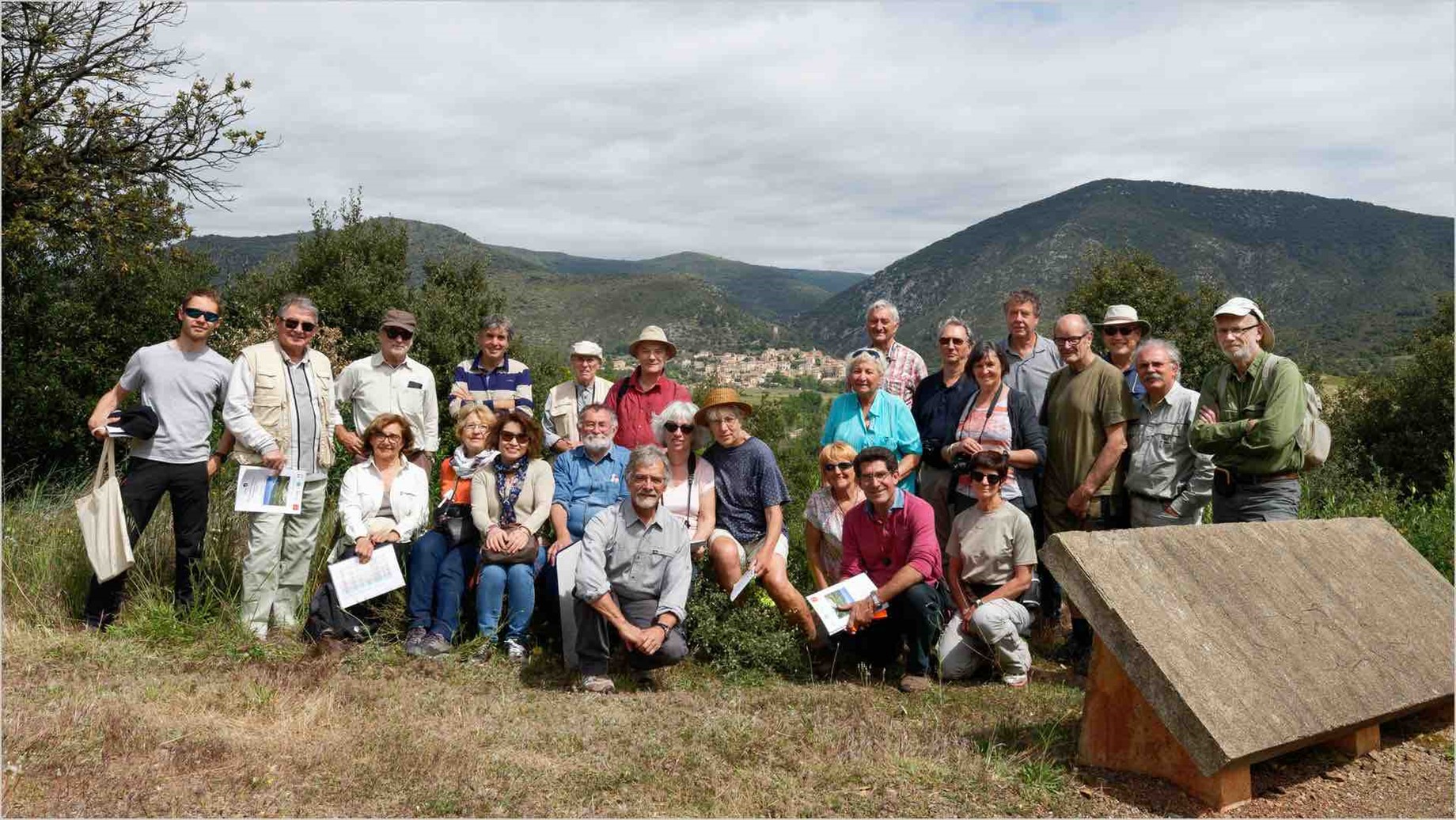
The following is an interview with Prof. Dr. Michel Faure:
1. Could you give us a brief introduction of yourself to the readers?I am an emeritus professor at the University of Orléans (France). I am studying structural analysis, deformation–metamorphism relationships, and the structural control of pluton emplacement in order to decipher the large-scale tectonics and geodynamic evolution of orogenic belts, namely, accretionary, collisional, and intracontinental orogens. Since the 1980s, I have focused on the Mesozoic margin of East Asia in Japan, the Philippines, Sikhote Alin (Russia), North China, South China blocks, and Central Asia in W. Tianshan and Junggar. These studies are carried out in multidisciplinary teams with petrologists, geochronologists, and geophysicists. My present interest is the understanding of the Triassic tectonics of East and SE Asia. In the South China block (Xuefengshan belt), I focus on the relationships between the South China and Indochina blocks, particularly in the NE (Song Chay belt), NW Vietnam, (Song Ma belt), Ailaoshan, and Jinshajiang.
In Europe, I am working on the active mechanisms in the Paleozoic Variscan orogeny, including syn-metamorphic crustal thickening, late- to post-orogenic extension, pluton emplacement, and ore deposits.
I have authored or co-authored about 300 publications and supervised about 30 Ph.D. students. I am also an associate editor of the Journal of Asian Earth Sciences and Comptes Rendus Geoscience of the French Académie des Sciences.
2. Could you please briefly introduce the main content of the winning paper?This paper deals with a reconstruction of the geodynamic domains of the Paleozoic Variscan belt in the basement of the Alpine chain. By comparison with the French Variscan segments of the Massif Armoricain and Massif Central, correlations are proposed for the External and Internal massifs of the Western Alps, Corsica–Sardinia–Maures segment, Southern Alps, and the Austroalpine areas. In spite of some uncertainties due to the Cenozoic Alpine tectonics, the Variscan domains that are involved in the Western, Central, and Oriental Alps can be correlated with the Variscan segments that are recognized outside of the Alps. Emphasis is placed on the Paleozoic suture zones. The general arrangement of the Variscan massifs that form the Alpine basement defines a curved shape with east-facing convexity that we propose to call the “Alpidic Variscan orocline”.
3. What’s your current research and why did you choose this research field?
I have studied the Variscan belt of Western Europe, mainly from SW England to the Pyrenees, throughout the Armorican Massif and the Massif Central. I have also investigated the Corsica–Sardinia–Maures branch of this orogen. Assuming a general continuity of the Variscan domains, it was tempting to investigate the Alpine basement in which Variscan rocks have been recognized for a long time.
4. Could you describe the difficulties and breakthrough innovations in this research field?
The metamorphic, magmatic, and geochronological features of the Variscan belt that are exposed in the basement of the Alps have been investigated for more than 50 years. However, previous studies did not pay enough attention to the structural aspects. Due to the intense Cenozoic reworking, unfolding the Alpine deformation, including Variscan kinematics, represents a real challenge, as it is tempting to use the Alpine tectonic framework to decipher the Paleozoic one. However, the Alpine architecture does not directly follow the Variscan zonation. The major difficulty in this approach was to critically assess the available data that are provided in the literature.
5. Have you ever encountered any difficulties when you conduct research? How did you overcome them?
Academic scientific research is always risky. Field observations and laboratory measurements are never “objective”. In order to derive new and innovative insights, a scientist must start their research based on a “working hypothesis”. One of the major difficulties is to be able to abandon the “working hypothesis” if too many contradictory facts do not support it. An open-minded attitude is the major quality that is needed for a scientist. Moreover, although it is difficult to define it clearly, “common sense” is essential in natural sciences. Often, a qualitative approach based on experience is more fruitful than a quantitative one based on numbers.
6. Which research topics do you think will be of particular interest to the research community in the coming years?
Presently, in the earth sciences field, environmental aspects are put forward. Of course, a sustainable Earth, including water resources, ore deposits, fossil energy resources, soil preservation, air quality, etc., should be major issues for the earth sciences research community. However, firstly, an understanding of the general geological framework is necessary before addressing environmental questions. Accurate mapping using field-based surveys and petrological, structural, geochemical, geochronological, and geophysical approaches must not be forgotten. Fundamental studies, among which tectonics and geodynamic aspects of the lithosphere evolution are essential, represent the foundation that supports all the applied investigations.
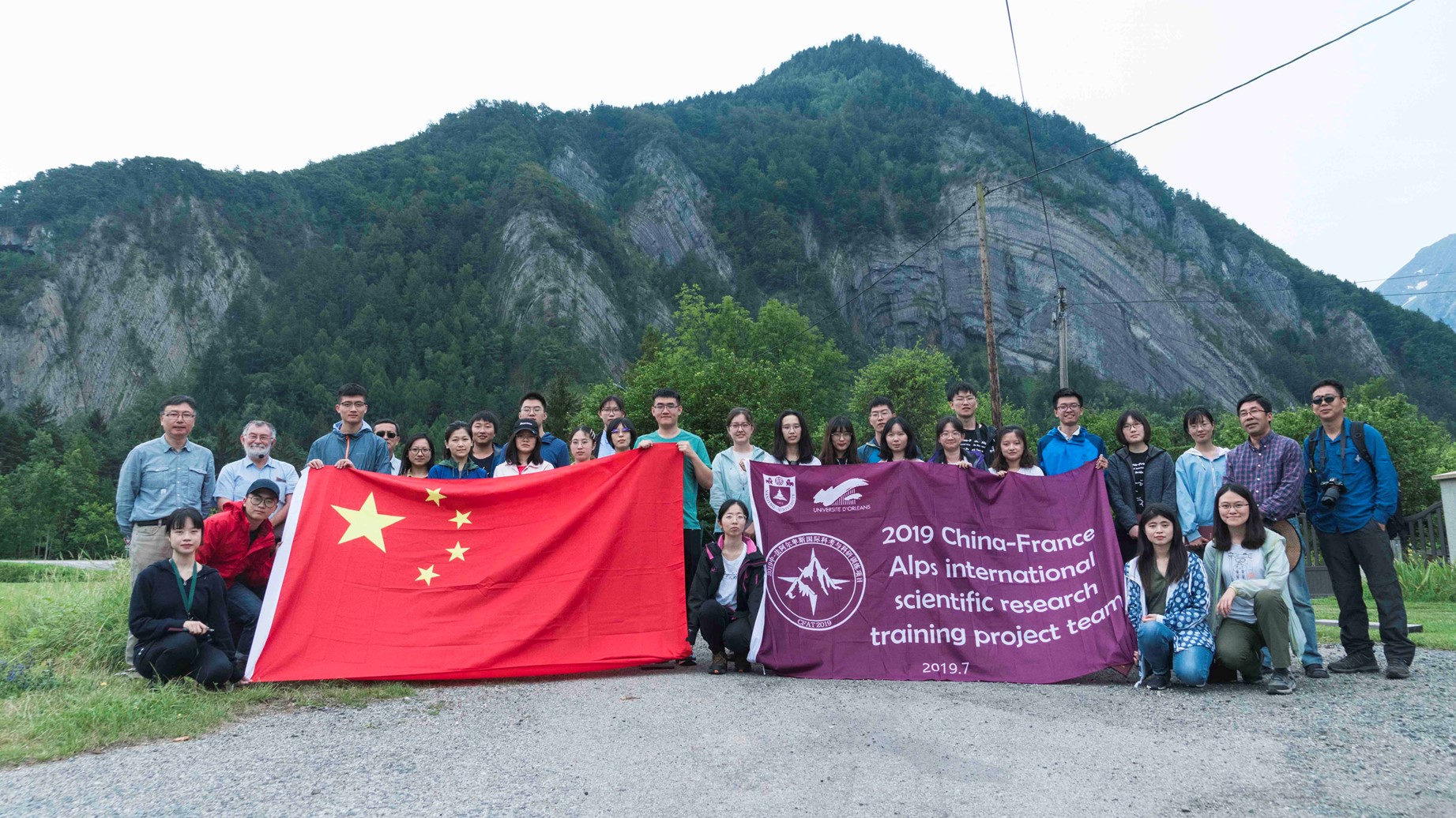
7. What appealed to you about the journal that made you want to submit your paper? What benefits do you think authors can gain when publishing their articles in Geosciences?
Although I am an occasional reader of Geosciences, I did not pay too much attention to the papers published in the journal. This awarded paper was a contribution to an invitation by Prof. Rodolfo Carosi, who was the Guest Editor of a Special Issue. As an electronic open access journal, the papers published in Geosciences can reach a worldwide readership.
8. How was your experience submitting to Geosciences?
It was a very nice experience. The Editor of the Special Issue, Prof. Carosi, and the two reviewers provided constructive comments that helped us improve the initial version of the paper. The editing and publishing processes were really fast and efficient. The publishers were extremely reactive, providing a fast return, even on a Sunday.
9. What qualities do you think young scientists need?
Young scientists are facing strong competition within their community. For them, the pressure to publish their results is rapidly increasing. “Publish or perish” is now becoming a general rule.
Nevertheless, young scientists must not forget that high-quality papers require time and a scientific background. Young scientists must show an open mind to new ideas and concepts, trying to apply up-to-date methods to tackle the scientific questions that they are addressing, but older publications, even if not always available on the internet, deserve to be read. Imagination is an important quality to promote innovative ideas. Furthermore, they must keep in mind that whatever the interest of a model might be, it must be validated by empirical observations and/or experiments.
10. Can you briefly describe the key to a happy laboratory life?
A happy laboratory life requires good human relationships with colleagues that you meet every day. Special meetings, such as M.Sc. or Ph.D. defenses, foreign guest lectures, and even parties, provide opportunities to meet colleagues, to strengthen ties with them, not only on scientific grounds but also on human ones. In this aspect, the heads of the laboratory play a major role by gathering lab members, not only researchers but also teachers and technical staff.
11. We are an open access journal. How do you think open access impacts the authors?
Of course, open access journals are an easy way to reach the scientific community all around the world. These journals allow the authors to achieve a worldwide diffusion of their results. This may contribute to enhancing scientific discussions and also to building up proposals.
However, in the academic field of research, funding is now relatively reduced. Therefore, the financial contribution requested from the authors must be kept at a reasonable level.
12. As the winner of this award, is there something you want to express, or someone to thank most?
I, and my coworker Jacky Ferrière, are particularly honored by this award. We thank the readers of our article for their interest and kind appreciation. We are also sincerely grateful to the editors, the Editorial Board of Geosciences, and the publishers for their choice.
7 February 2024
Interview with Dr. Yuchen Wang—Winner of the Geosciences 2023 Outstanding Reviewer Award
Recently, we reached out to Dr. Yuchen Wang, a winner of the Geosciences 2023 Outstanding Reviewer Award, as we were eager to hear his perspectives on geosciences.
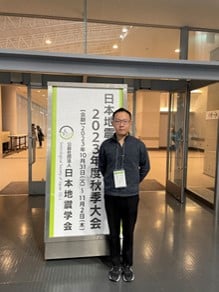
Dr. Yuchen Wang received his Bachelor of Science in physics from Peking University in 2016, his master’s degree in earth and planetary science from the University of Tokyo in 2018, and his Ph.D. in earth and planetary science from the University of Tokyo in 2021. From April 2019 to September 2021, he served as a Research Fellow DC1 of the Japan Society for the Promotion of Science (JSPS) and was a visiting student at the National Center for Integrated Disaster Management (CIGIDEN) in Chile.
Since October 2021, he has been a Young Research Fellow at the Japan Agency for Marine-Earth Science and Technology (JAMSTEC), with a focus on research areas such as earthquake tsunamis, meteorological tsunamis, data assimilation, and coastal disaster mitigation. He has published 34 peer-reviewed papers in journals such as Geophysical Research Letters and the Journal of Geophysical Research: Oceans, and Ocean Engineering. He has an h-index of 15 (according to Google Scholar statistics), and has served as a reviewer for 33 journals, including 10 MDPI journals.
The following is an interview with Dr. Yuchen Wang:
1. What are you currently researching and why did you choose this research field?
I am researching tsunamis. A tsunami is a series of ocean waves with extremely long wavelengths, caused by large-scale disturbances of the ocean, such as earthquakes, volcanic eruptions, and landslides. It can cause loss of life and damage to properties. Therefore, rapid and accurate early tsunami warning is essential for coastal disaster mitigation.
I attended a field trip to Fukushima Prefecture, Japan, when I was an undergraduate. I saw the ruins of the tsunami caused by the 2011 Tohoku earthquake. I was shocked by the destructive power of this natural disaster. After that, I decided to research tsunami science and became a graduate student at the Earthquake Research Institute, University of Tokyo.
2. Could you please introduce us to your research team, and how you came to the idea of becoming a scientist?
At present, I am working at the Japan Agency for Marine-Science and Technology, Research Institute for Marine Geodynamics, Research and Development Center for Earthquake and Tsunami Forecasting. The mission of our center is to develop technology for the real-time monitoring of crustal and seawater movements on the seafloor, and to make maximum use of these observation data to develop and implement a system for forecasting earthquakes and tsunamis. We conduct numerical simulations with an advanced supercomputer system—the Earth Simulator. We also participate in field surveys to look for tsunami deposits.
I believe that exploring a new field as a scientist is a very interesting thing. I hope to contribute to mitigating the disastrous effects of tsunamis through my own efforts.
3. We are an open access journal. How do you think open access impacts authors?
Open access allows authors to make their work freely available to anyone with an internet connection. This can lead to increased visibility and reach for their research, as it removes barriers such as paywalls, which restrict access to those who can’t afford it. More people can discover, read, and cite their work, potentially increasing its impact and influence in the academic community.
In addition, by making their work freely available, authors can attract more readers and potential collaborators, leading to increased citations and recognition within their field. Open access articles may receive more citations than articles hidden behind paywalls.
In fact, an increasing number of traditional journals are also transitioning to open access. It could be a trend.
4. Could you please share with us your experience of being a reviewer for Geosciences?
I have been reviewing for Geosciences since 2022. It is a good journal with high-quality articles. I mainly handle reviews in the field of tsunamis but also deal with giant earthquakes and storm surges. As a reviewer, I usually provide my review within a week. On the one hand, I give authors appropriate suggestions for revisions; on the other hand, I also ensure strict quality control for the journal. During the peer review process, I am also able to stay updated on the latest research advancements, especially regarding non-seismic aspects of tsunamis. Additionally, the publishing process is very efficient, which is a great help to authors. Over the past year, I have reviewed a total of seven articles for Geosciences, and I look forward to continuing to work with the journal in the future.
5. What qualities do you think reviewers need?
I believe the two most important qualities for a reviewer are expertise and objectivity. Firstly, reviewers should have expertise in a subject area that is relevant to the manuscript they are reviewing. This expertise allows them to evaluate the research methods, results, and conclusions critically. Secondly, reviewers should maintain objectivity and impartiality throughout the review process, regardless of personal biases or preferences. They should focus on evaluating the quality and validity of the research presented in the manuscript. In addition, I believe reviewers also need strong time management skills. They should be able to provide timely review comments while fulfilling their own research duties.
31 January 2024
MDPI Insights: The CEO's Letter #8 - Altmetric and Flat Fee Agreement

Welcome to the MDPI Insights: The CEO's Letter.
In these monthly letters, I will showcase two key aspects of our work at MDPI: our commitment to empowering researchers and our determination to facilitating open scientific exchange.
Opening Thoughts

MDPI and Digital Science Meeting
At MDPI, we are committed to providing our authors with the essential tools to publish, promote, and track their research. In line with this commitment, we have established a longstanding collaboration with Digital Science, a company specializing in research data and analytical insights for the research community. Our collaboration integrates their Altmetric tool, offering us and our authors the ability to track a variety of sources that monitor and report attention surrounding publications.
As part of our collaboration, we recently hosted Cathy Holland, Director of Global Publisher Business Development, and Helen Cooke, Managing Director of Publisher Sales, from Digital Science, at our MDPI headquarters in Basel, Switzerland.
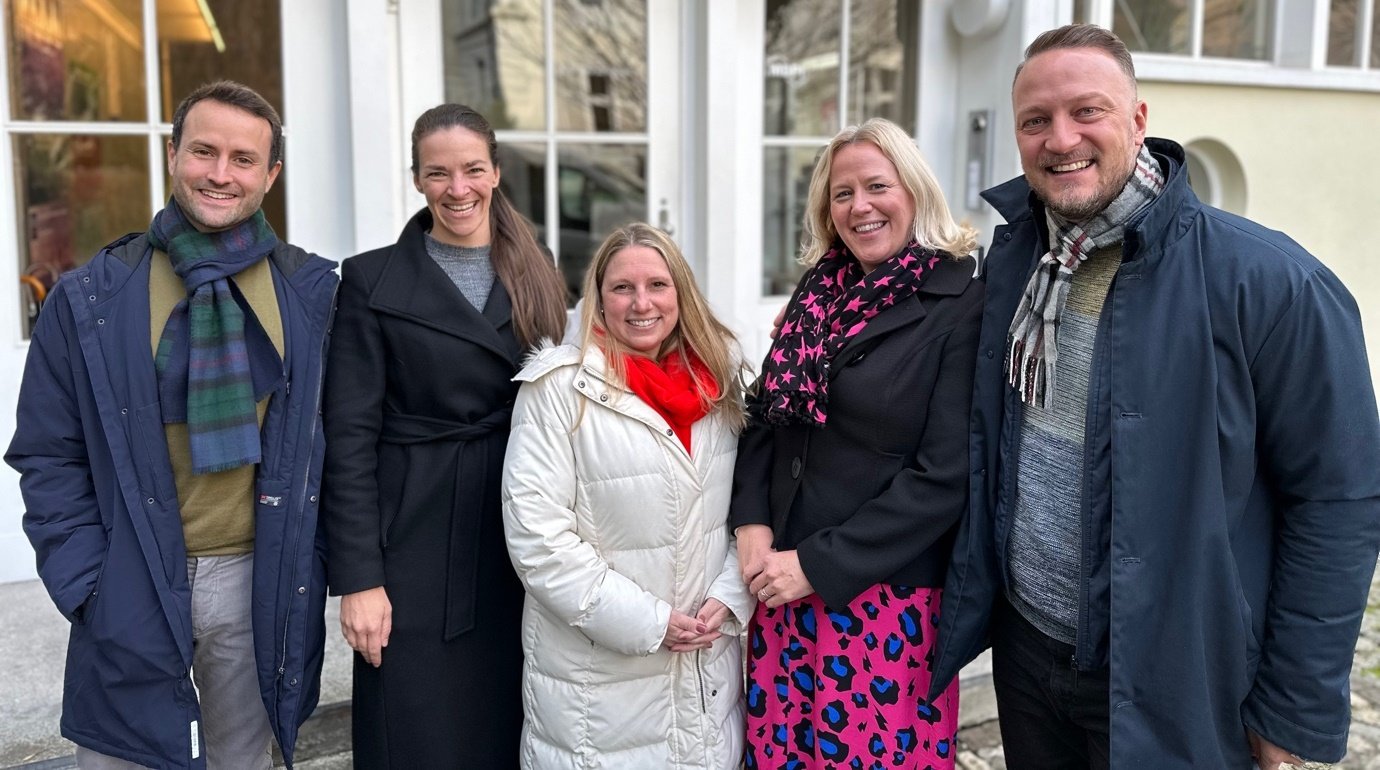
Left to right: Facundo Santomé (Senior Marketing Manager, MDPI), Constanze Shelhorn (Indexing Manager, MDPI), Cathy Holland (Director of Global Publisher Business Development, Digital Science), Helen Cooke (Managing Director of Publisher Sales, Digital Science), and Stefan Tochev (CEO, MDPI) in front of MDPI headquarters in Basel, Switzerland.
During our meeting, we discussed MDPI’s publishing philosophy and explored further avenues for collaboration. We look forward to continuing our partnership with Digital Science, aiming to improve our services yet further and meet the needs of our authors more closely than ever.
What is Altmetric?
You will notice that MDPI articles feature an Altmetric score, a colourful doughnut capturing the score in the upper right corner of the article page. This score represents ‘alternative metrics,’ as distinct from traditional metrics such as Impact Factor, CiteScore, and Scimago Journal Rank.
Altmetrics complement traditional citation-based metrics by capturing online discussions related to a specific research topic. By analyzing both sets of data, we can obtain a comprehensive understanding of the attention a particular research output receives and the sources in which it is mentioned.
“Almetric provides visual insights into where research is being discussed”
Sources Tracked by Altmetric
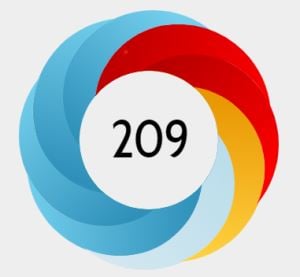
Altmetric badge showing the Altmetric score and colour-coded mention sources.
Altmetric monitors various sources, categorizing them into segments such as policy documents, peer reviews, Wikipedia, news and blogs, and social media, among other sources. Each category is identifiable by a specific colour.
The Altmetric badge provides visual insights into where the research is being discussed. A more colourful badge indicates broader mentions across multiple platforms. Such tracking enables us to gauge the extent of an article’s online dissemination, noting that increased visibility may correlate with higher citation rates.
Read more:
Impactful Research

Ten High-Altmetric Articles Published by MDPI
As at 30 January 2024, Altmetric has tracked 670,500 MDPI research outputs from MDPI, resulting in over 4.3 million mentions. This includes over 71,894 mentions in policy and patents and 294,714 mentions in news and blogs, with some achieving an Altmetric score as high as 28,754.
So, what is a good Altmetric score? There are various ways to put this score into context. You can find out more about the score in context and how to evaluate your work by this means.
Here are ten MDPI papers ranking in the top 5% of all research outputs scored by Altmetric.
|
|
“Accuracy in Wrist-Worn, Sensor-Based Measurements of Heart Rate and Energy Expenditure in a Diverse Cohort” J. Pers. Med. 2017, 7(2), 3; https://doi.org/10.3390/jpm7020003 Altmetric page: https://mdpi.altmetric.com/details/20477344 Altmetric shows that this article appeared in 253 news stories from 209 outlets including Forbes, BBC, and Fox News. |
|
|
“Daylight Saving Time and Acute Myocardial Infarction: A Meta-Analysis” J. Clin. Med. 2019, 8(3), 404; https://doi.org/10.3390/jcm8030404 Altmetric page: https://mdpi.altmetric.com/details/57654628 Altmetric shows that this article appeared in 295 news stories from 207 outlets including Forbes, The Atlantic, and New York Times. |
|
|
“The Preliminary Analysis of Cave Lion Cubs Panthera spelaea (Goldfuss, 1810) from the Permafrost of Siberia” Quaternary 2021, 4(3), 24; https://doi.org/10.3390/quat4030024 Altmetric page: https://mdpi.altmetric.com/details/111086701 Altmetric shows that this article appeared in 182 news stories from 134 outlets including CBC News, CNN, and National Geographic. |
|
|
“Not the Cat’s Meow? The Impact of Posing with Cats on Female Perceptions of Male Dateability” Animals 2020, 10(6), 1007; https://doi.org/10.3390/ani10061007 Altmetric page: https://mdpi.altmetric.com/details/83796184 Altmetric shows that this article appeared in 124 news stories from 98 outlets including VICE, CNN and The Guardian. |
|
|
“Behaviour and Welfare Impacts of Releasing Elephants from Overnight Tethers: A Zimbabwean Case Study” Animals 2022, 12(15), 1933; https://doi.org/10.3390/ani12151933 Altmetric page: https://mdpi.altmetric.com/details/133463915 Altmetric shows that this article appeared in 192 news stories from 186 outlets. |
How do I use altmetrics?
Altmetric Explorer provides a detailed step-by-step guide and instruction video for first-time users of the tool. The guide includes useful diagrams that make it easy to get started.
Sharing Research Online
For research to be tracked across different sources, Altmetric needs a research output with a persistent identifier: a DOI, ISBN, PubMed ID, handle ID, etc. When sharing research, it is important to include a link to the original research output.
|
|
“An Update on Eukaryotic Viruses Revived from Ancient Permafrost” Viruses 2023, 15(2), 564; https://doi.org/10.3390/v15020564 Altmetric page: https://mdpi.altmetric.com/details/142929875 Altmetric shows that this article appeared in 250 news stories from 180 outlets including CTV, Fox News, and CNN. |
|
|
“The Global Problem of Insufficient Sleep and Its Serious Public Health Implications” Healthcare 2019, 7(1), 1; https://doi.org/10.3390/healthcare7010001 Altmetric page: https://mdpi.altmetric.com/details/53406248 Altmetric shows that this article appeared in 252 news stories from 168 outlets including BBC, Harvard Business Review, and Forbes. |
|
|
“A Detailed Review Study on Potential Effects of Microplastics and Additives of Concern on Human Health” Int. J. Environ. Res. Public Health 2020, 17(4), 1212; https://doi.org/10.3390/ijerph17041212 Altmetric page: https://mdpi.altmetric.com/details/86529137 Altmetric shows that this article appeared in 197 news stories from 150 outlets including BBC, The Tribune, and World Economic Forum. |
|
|
“An Empirical Study of Chronic Diseases in the United States: A Visual Analytics Approach to Public Health” Int. J. Environ. Res. Public Health 2018, 15(3), 431; https://doi.org/10.3390/ijerph15030431 Altmetric page: https://mdpi.altmetric.com/details/34714141 Altmetric shows that this article appeared in 232 news stories from 149 outlets including Forbes, New York Times, and Harvard Business Review. |
|
|
“Garden Scraps: Agonistic Interactions between Hedgehogs and Sympatric Mammals in Urban Gardens” Animals 2023, 13(4), 590; https://doi.org/10.3390/ani13040590 Altmetric page: https://mdpi.altmetric.com/details/142934305 Altmetric shows that this article appeared in 172 news stories from 168 outlets including BBC. |
Inside MDPI

MDPI Annual Meeting Celebrations in China
On Thursday 25 January, over 1,300 MDPI colleagues from our two offices in Beijing gathered to kick off MDPI’s traditional ‘Annual Meetings.’ These celebrations take place in MDPI’s offices across China, including Dalian, Tianjin, Wuhan, and Nanjing.
The evenings include performances, informative talks and presentations, awards, and entertainment, providing an ideal platform to recognize our colleagues, celebrate their achievements, and set our sights on the future.
“It is essential that we stay connected and share best practices”
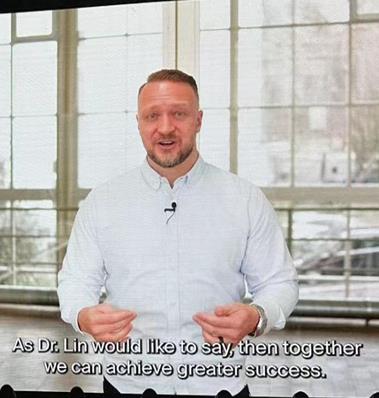
I sent a video congratulating everyone on their work and sharing our vision of building MDPI into the most trusted OA publisher, highlighting the roles each of us has to play in achieving that goal.
Unfortunately I could not join in person, but you may recall my recent trip, when I visited our offices in Beijing and Wuhan, which I look forward to visiting again this year.
Although our headquarters are in Basel, Switzerland, and we are expanding throughout Europe and North America, the majority of MDPI’s workforce is in China and throughout the Asia-Pacific region, including offices in Singapore, Thailand, Japan, and newly opened office in South Korea. It is essential that as a global organization, we stay connected and share best practices in order to grow collectively and continue providing the exceptional service to our authors.
The Annual Meeting is a moment to reflect and enjoy the year’s hard work and dedication.
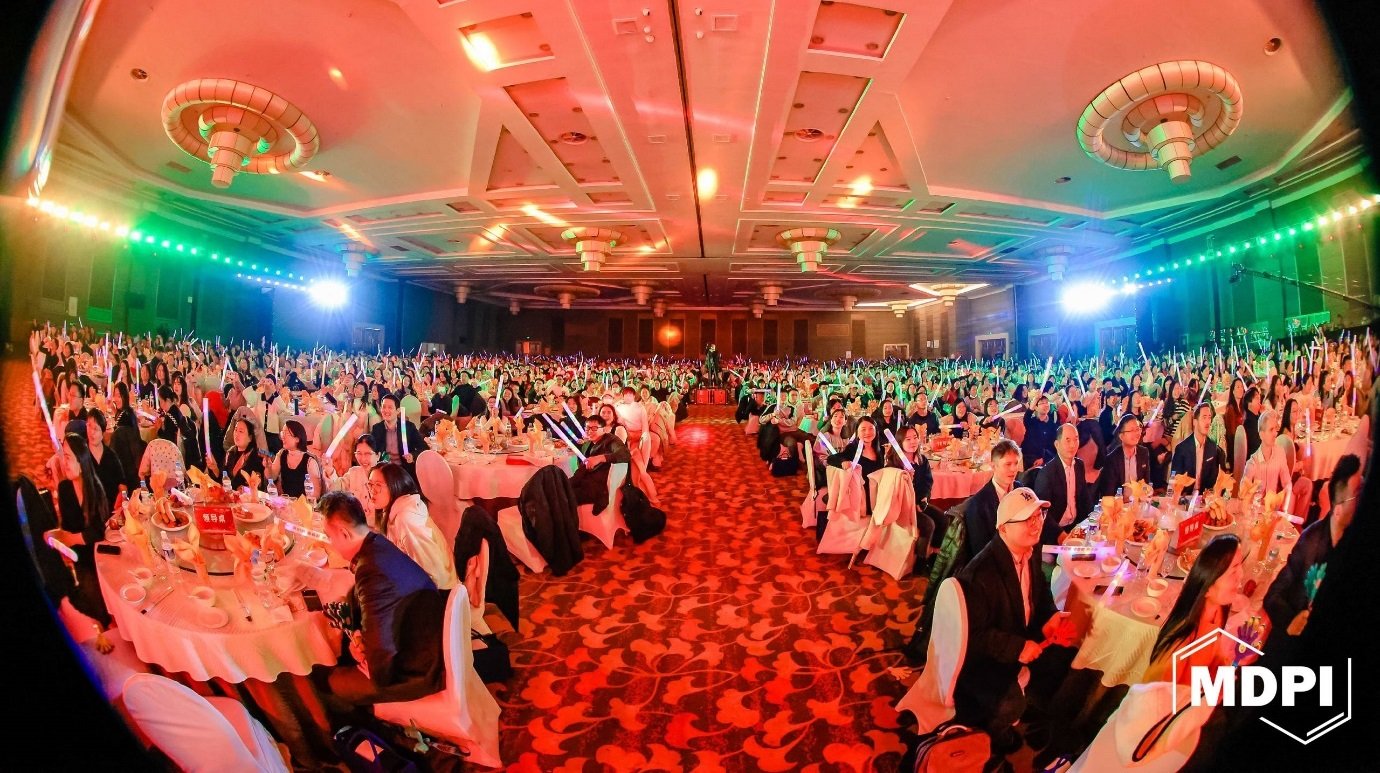
I extend our best wishes to all for the Chinese New Year (Xīnnián kuàilè)!
Coming Together for Science
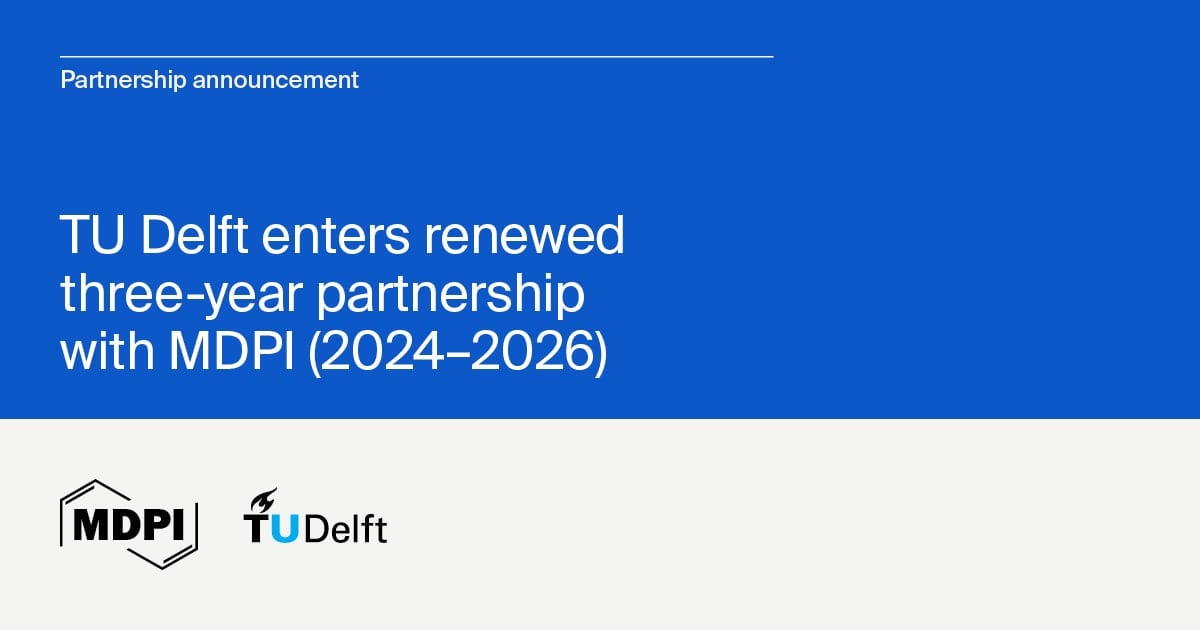
MDPI and TU Delft Adopt Flat Fee Model in Extended Partnership
We are excited to announce a renewed three-year partnership with Delft University of Technology (TU Delft) in the Netherlands. This collaboration introduces a fixed lump-sum fee, covering publishing costs from 2024 to 2026.
“This initiative reflects our dedication to transparent and inclusive publishing”
TU Delft-affiliated authors will enjoy cost-free publishing in any MDPI journal during this period, aligning with our commitment to removing barriers for open access publishing. The agreement supports Plan S compliance and facilitates a seamless publishing process for TU Delft corresponding authors. This initiative reflects our dedication to transparent and inclusive publishing, providing stability and predictability both for authors and for institutions.
For further details on our Institutional Open Access Program (IOAP), please contact us.
Benefits to MDPI’s IOAP
At MDPI we have a long tradition of partnerships, including our Institutional Open Access Program (IOAP). IOAP supports institutions through simplification, access, transparency, APC discounts, and institutional repository deposits. The program simplifies administrative processes, offers central payment, and allows easy opting in and out. Participants gain free access to Susy, MDPI’s online submission system, with extensive article metadata and exportable data. APC discounts and Book Processing Charge discounts are available for affiliated authors. Automated deposits to institutional repositories and streamlined matching of papers to IOAP participants enhance the overall experience.
For further information, see our IOAP FAQ.
Closing Thoughts

Reflections on the 2024 APE Conference
MDPI was proud to co-sponsor the Academic Publishing in Europe (APE) 2024 Conference that took place in Berlin, Germany, from 9–10 January 2024.
The conference theme, ‘Keep the Conversation Going!’, explored the evolving landscape of scholarly communication. APE is one of the key conferences I make a point to attend each year. January offers a valuable opportunity to engage with new contacts, reconnect with familiar faces, and participate in impactful discussions and presentations among professionals, scholars, and practitioners in the field.
“It's fascinating to see how other publishers are leveraging AI”
Highlights
Some of the standout panels for me include: the role of the UN Sustainable Development Goals (SDGs) within the publishing industry. It was encouraging to hear the current status quo, though I was eager also to learn about the exciting projects planned for 2024 and beyond. These will allow us to track progress in subsequent years. At MDPI, we remain committed to promoting Open–Access (OA) content on SDGs through scientific articles and books. Furthermore, we extend our commitment to sustainability by financially supporting researchers through initiatives such as the World Sustainability Award and the Emerging Sustainability Leader Award, as well as waiving the APC for feature papers on each SDG.
In recent years, discussions on AI have become increasingly prominent at such conferences. It’s fascinating to see how other publishers are leveraging AI to meet the evolving needs of their audiences while at the same time using it to safeguard the scientific process. Other engaging panels that I enjoyed included updates on transformation beyond transformative agreements, the principles of lean change, incentive structures related to research integrity, and the panel on reviewer incentives.
“We can share best practices and lessons learned”
Incorporating MDPI’s Insights into Conferences
I must confess that I sometimes feel overlooked when MDPI is not invited to participate in crucial industry discussions. As the leading open access publisher and the third-largest publisher overall, we possess extensive experience in many of these areas and can offer valuable contributions to these discussions. We can share best practices, lessons learned, and our thinking about future trajectories. For instance, in panels discussing reviewer incentives, at MDPI we offer a discount voucher to reviewers for future submissions, reflecting our commitment to fostering a robust peer review process. In 2022 alone, MDPI collected over 1.4 million peer review reports, informing the decision-making processes of our editors. Given our expertise in these areas, it would be natural to include MDPI in such discussions. I therefore extend an invitation to future conference organizers to consider MDPI for speaking engagements and collaborative opportunities.
Chief Executive Officer
MDPI AG
29 January 2024
Interview with Dr. Simone Bello—Winner of the Geosciences 2023 Outstanding Reviewer Award
Recently, we reached out to Dr. Simone Bello, winner of the Geosciences 2023 Outstanding Reviewer Award, as we were eager to hear his perspectives on geosciences.
Name: Dr. Simone Bello
Affiliation: 1. DiSPuTer, University G. d’Annunzio Chieti-Pescara, Via dei Vestini 31, 66100 Chieti, Italy;
2. CRUST–interUniversity Center for 3D Seismotectonics with Territorial Applications, Italy
Research Interests: structural geology, seismotectonics, active tectonics, field geology
The following is an interview with Dr. Simone Bello:
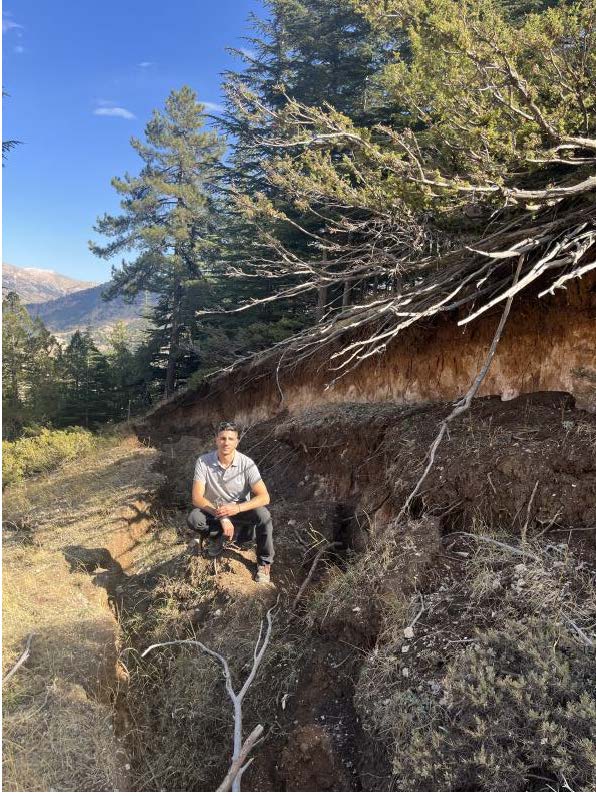
1. Could you give a brief introduction of yourself to the readers?
I am Dr. Simone Bello, a Research Scientist specializing in structural geology and seismotectonics. Hailing from a charming village near Varese, nestled between the breathtaking lakes Maggiore and Lugano in Northern Italy, I currently contribute my expertise at the University “G. d’Annunzio” Chieti-Pescara in the picturesque Abruzzo region. I have a passion for the comprehensive exploration of the dynamic processes shaping the Earth's crust, its deformation and evolution. I adopt a multidisciplinary approach, integrating field-based structural–geological observations, both with classic and modern techniques, with insights from seismology, geophysics, remote sensing, and geochemistry to advance knowledge in my field. What propels me forward is not just the scientific intrigue, but a genuine passion for unraveling the mysteries beneath our feet and around us.
2. What’s your current research area and why did you choose this field?
I am currently engaged in multiple research endeavors that collectively contribute to advancing our understanding of the structural–geological complexities of the entire Italian Apennines and beyond. One prominent aspect of my work involves the construction of a comprehensive database housing structural–geological information. This expansive database is pivotal in achieving various scientific objectives, notably the nuanced redefinition of tectonic provinces within the Italian peninsula and the detailed exploration of the stress and deformation dynamics shaping the region.
In a parallel research strand, I am delving into the synergistic integration of structural and topographic data with geochemical insights. This interdisciplinary approach aims to unravel the mysteries surrounding past earthquakes and their "imprints" on the topographic surface. By merging and analyzing these diverse datasets, I seek to unveil the relationships between geological structures, topography, and geochemical signatures, providing valuable insights into the seismic history of the studied area.
This dual-pronged research approach not only contributes significantly to the broader field of geosciences but also holds practical implications for seismic hazard assessment and mitigation. As we refine our understanding of the geological complexities and historical seismic activity of our places, we move closer to developing more effective strategies for seismic risk management and enhancing the resilience of communities in earthquake-prone regions.
3. What qualities do you think young scientists need?
First and foremost, I believe that passion forms the bedrock of a young scientist's qualities. While it may sound cliché, the genuine love for what one does is fundamental. Personally, my passion for my work serves as a driving force, enabling me to navigate even the most challenging days with enthusiasm and to tackle every obstacle in the best possible way. Therefore, the first crucial quality is to be passionate.
The second essential quality is undoubtedly determination. In the field of research, determination is paramount; it empowers individuals to achieve remarkable outcomes even in the face of numerous setbacks. Embracing determination allows one to persevere through failures and ultimately reach successful conclusions. Be determined!
Lastly, I would emphasize the significance of being dynamic and proactive. Delve into new fields of study and approach everything with the eagerness to learn something new. Forge collaborations that expand your scientific horizons continually. Being dynamic and proactive fosters a mindset of constant growth and adaptability in the ever-evolving scientific landscape.
4. What qualities do you think reviewers need?
Being a good reviewer plays a crucial role in evaluating and improving scientific papers, and several qualities are essential. Firstly, a reviewer should be driven by curiosity, motivated to explore the latest scientific discoveries even before they are officially published.
A good reviewer must possess impartiality and a proactive mindset. While reviewing well-structured, well-written, clear, concise, and comprehensive scientific articles can be rewarding, it is equally important to provide constructive feedback when some of these qualities are lacking. Guiding authors with valuable suggestions to enhance their research is a key aspect of the reviewer's role.
Intellectual honesty is a cornerstone. A reviewer should maintain fairness, even when there might be disagreements with specific content due to personal background or cultural influences. This is contingent upon the condition that the research adheres to sound scientific methods. Embracing diverse perspectives and encouraging new ideas is vital for advancing scientific knowledge.
Finally, the efficiency of reviewing a paper quickly is among the best qualities! After all, who doesn't know the anxiety of waiting for their article, on which they've worked so hard, to come back from reviews?
5. As the winner of this award, is there something you want to express, or someone to thank most?
First of all, I would like to express my heartfelt gratitude to the Award Committee for bestowing upon me the Geosciences 2023 Outstanding Reviewer Award. Upon learning of my win, I was truly incredulous and pleasantly surprised, as I had not anticipated such recognition for my role as a reviewer for Geosciences. There's a common belief among researchers that dedicating time to the peer review process takes away from one's own research endeavors without providing much in return. Personally, I've always disagreed with such statements, as the act of reviewing not only makes contributions to the scientific community, but also provides invaluable learning experiences. Winning this award further strengthens my conviction that the reviewing process is a crucial and enriching aspect of our academic pursuits.
I also want to extend my gratitude to my exceptional research team at the University of Chieti. They have become a second family to me, and I share a significant portion of my time and passion for research with them. Their support and collaboration have been instrumental in my achievements.



